Click the links below for help with drug and alcohol addiction in Buckingham
Drug and Alcohol Rehab in Buckingham
A historic market town surrounded by countryside, Buckingham residents, have access to the conveniences of modern life as well as a twice-weekly street market dating back over 600 years.
Over time, however, the effects of drugs and alcohol have begun to make their mark on this relatively small town.
Research has found that 1 in 4 adults in Buckingham are regularly drinking more than the recommended levels, with alcohol-related hospital admissions increasing by 27% since 2009. [1]
| Type of household with drug and alcohol issues | Buckinghamshire | England |
|---|---|---|
| Parent living with children | 17% | 18% |
| Other child contact – living with children | 2% | 6% |
| Parent not living with children | 33% | 30% |
| Not a parent and not in contact with children | 48% | 46% |
Drug deaths are also on the rise, with the highest number recorded in Buckingham since records began. [2]
You can use our services to access drug and alcohol rehab in Buckingham for yourself or a loved one, and this article will provide you with a range of treatment options that are available locally to you.
To find out more about drug and alcohol rehab in Buckingham, please call our 24-hour helpline on 0800 326 5559
How OK Rehab can help you with drug or alcohol addiction

Attempting to deal with an addiction whilst juggling multiple other aspects of daily life can be exhausting, overwhelming and stressful for anyone. Add seeking help for your addiction into the mix, and it can all become too much to handle.
This is where we here at OK Rehab can step in.
We can help you or a loved one dealing with an addiction, self-admit into suitable treatment, and begin the long journey to a full recovery.
Thanks to our smooth-running services and friendly admissions team, you can rest easy whilst the hard work of finding the right drug and alcohol rehab in Buckingham is taken over for you.
Unfortunately, there are plenty of misconceptions surrounding addiction and treatment in rehab that is reinforced by negative stereotypes on screen and online.
We want to reassure you that rehab is no place to fear, and your recovery is possible no matter your circumstances.
At this time, it is understandable to have many queries and concerns. Some of our most frequently asked questions are briefly answered below, but if you require any further information on any topic or wish to begin an enquiry for yourself or a loved one, call us today on 0800 326 5559.
To find out more about drug and alcohol rehab in Buckingham, please call our 24-hour helpline on 0800 326 5559
How do I know I definitely need to go to rehab?

Rehab can be for absolutely anyone struggling with an addiction.
Regardless of the substance, the severity and length of the addiction, or the particular person impacted by the addiction, rehab in Buckingham offers the chance of a full and long-lasting recovery.
For this reason, there is no level you have to reach in order to warrant medical or professional help. Whether you are only now noticing signs of addiction in your life or you have been aware of your addiction for years, rehab is recommended.
Of course, the earlier an addiction is caught then, the higher chances there are of a quicker recovery, and the less likely long-term harm will have been done to the body and brain.
So, as soon as you begin to notice symptoms of an addiction, you should be seeking treatment.
What are the symptoms of drug and alcohol addiction?
If you are unsure of the exact signs of addiction, some of the main symptoms are listed below and split into three categories: Physical, psychological, and social.
Physical symptoms
- Drastic and unexpected changes in your physical appearance, such as losing weight
- Trouble sleeping or an unusually irregular sleeping pattern
- Increasing tolerance for the substance you use each time you use it, resulting in a higher dose needed each time to reach the same high
- Withdrawal symptoms when you have not used the substance for a short period of time (symptoms can include muscle pain, dizziness, fatigue, shaking, nausea and headaches)
Psychological symptoms
- More intense emotions; you are more easily agitated and on-edge than usual
- Constant thinking about the substance and the next time you will use it
- Heightened symptoms of existing mental health conditions like depression or anxiety
Social symptoms
- Avoidance of responsibilities in your work and social life
- Avoidance of events, gatherings, or parties
- Hiding stashes of the substance in secret places
- Lying to loved ones about your use of the substance
- Denying help from loved ones
- Lashing out at loved ones for expressing concern over your use of the substance
- Becoming more withdrawn in your social and work-life
If you have noticed any of these signs crop up in your life, it may be time to reach out for help. This is not an exhaustive list of symptoms, but we can take you through the rest over the phone and discuss your specific situation in more detail.
We can help you determine what the seriousness of your addiction and what your treatment options are.
To find out more about drug and alcohol rehab in Buckingham, please call our 24-hour helpline on 0800 326 5559
What is an intervention for drug or alcohol addiction?

Commonly used to motivate someone with a drug or alcohol addiction to seek help for their condition, an intervention is held by concerned friends and family members with the help of a professional interventionist.
By their very nature, interventions have the potential to be emotional and explosive. As a result, it is important to carefully plan and consider all aspects of this meeting to ensure that it is as effective as possible.
In most cases, the concerned friends and family members will have discussed their worries with the affected person and encouraged them to seek help before pursuing an intervention.
Using the element of surprise, the meeting will be held in a neutral location and allow each member to read a prepared statement. It’s important to remain calm and non-judgemental to avoid pushing the affected person away.
A successful intervention will usually end with the promise to seek help, and it can be effective to follow up after a week to ensure that the individual is actively researching and seeking treatment.
The CRAFT model of intervention is a completely different approach that focuses on the family members of the individual, as they are often best placed to effect change.
They will be given the tools and techniques to gently push the affected person towards treatment while learning how to avoid enabling their addiction and fostering strong communication. [3]
To find out more about drug and alcohol rehab in Buckingham, please call our 24-hour helpline on 0800 326 5559
Do I have a drug or alcohol addiction?
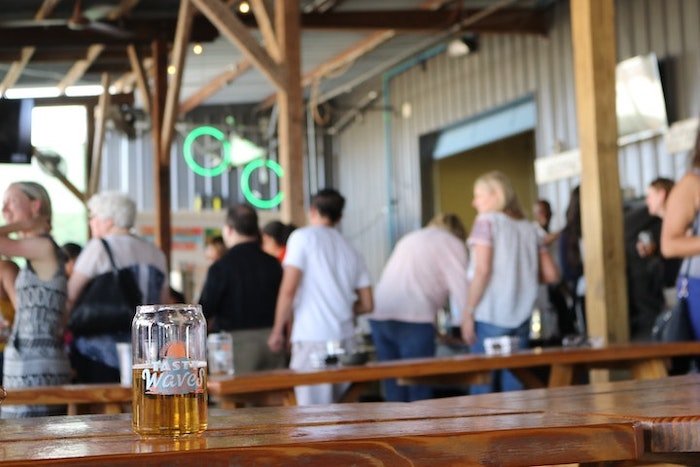
You may have become accustomed to regularly using drugs or alcohol as a form of entertainment or to cope with the stresses of daily life, but addiction is categorised by some severe symptoms.
How is drug or alcohol addiction diagnosed at rehab in Buckingham?
Using the CAGE questionnaire, you will be able to gain more of an understanding of your relationship with drugs and alcohol.
It consists of four simple questions that aim to shine a light on the way you use substances and is often used in medical settings to identify patients who are at risk of addiction.
CAGE stands for Cut, Annoy, Guilty and Eye. Each question that you answer in the affirmative will gain you one point, and a score of two or more points may indicate a dependency. [4]
The CAGE questionnaire is as follows:
- Do you ever think you should cut down on your use of drugs or alcohol?
- Do you ever feel annoyed with people who comment on your drug or alcohol use?
- Do you ever feel guilty about the way you use drugs or alcohol?
- Do you ever use drugs or alcohol as soon as you open your eyes in the morning?
This is not designed to be a professional diagnosis, even when used in a medical setting. It is a helpful tool that can indicate a potential dependency or addiction and is a sign that you should seek treatment as soon as possible.
To find out more about drug and alcohol rehab in Buckingham, please call our 24-hour helpline on 0800 326 5559
How much does drug and alcohol rehab cost in Buckingham?

If you are able to access rehab through the NHS or via private health or employee insurance, you are likely to have little to no fees to pay over the course of your treatment.
Many people, however, do not have access to these services and instead must pay for their addiction treatment themselves.
In most cases, the average cost of rehab per day is £495, which equates to roughly £14,000 for a 28-day stay. It is possible to reduce these costs by choosing a cheaper facility or sharing a room with another patient.
Luxury rehabs may charge up to £100,000 for a single stay, while other facilities may only charge £1000 per week.
It’s important to shop around and find a rehab clinic that suits your budget, so you can avoid leaving treatment with a substantial debt hanging over your head.
What impacts the cost of rehab in Buckingham?
The cost of rehab covers a wide range of factors, including:
- Counselling and therapy treatments
- Room and board for the duration of your stay
- Maintenance of the clinic and grounds
- Food and drink for the duration of your stay
- Staff salaries and training
- Medication
As well as the cost of treatment, you will also have to consider additional fees such as continuing to pay your rent or mortgage during your stay and taking time off work.
To find out more about drug and alcohol rehab in Buckingham, please call our 24-hour helpline on 0800 326 5559
How long does rehab last in Buckingham?

The time spent at rehab in Buckingham will vary for most people, as there are different stages of addiction, with some substances more difficult to recover from than others.
You should remain at rehab for as long as it takes for you to successfully detox, receive counselling and put together an effective relapse prevention plan.
It’s also important to consider your budget and any other restrictions that may limit the amount of time you spend at rehab – some insurance providers may only cover you for a maximum of 28 days.
In general, you can expect to be offered a choice between a 30, 60 or 90-day treatment programme.
Some shorter programmes may be available, such as a seven-to-ten-day home detox programme. While these can be an effective first step into treatment, they do not include counselling or relapse prevention and are, therefore, less likely to result in long-term recovery.
To find out more about drug and alcohol rehab in Buckingham, please call our 24-hour helpline on 0800 326 5559
Can I use health insurance to access drug and alcohol rehab in Buckingham?
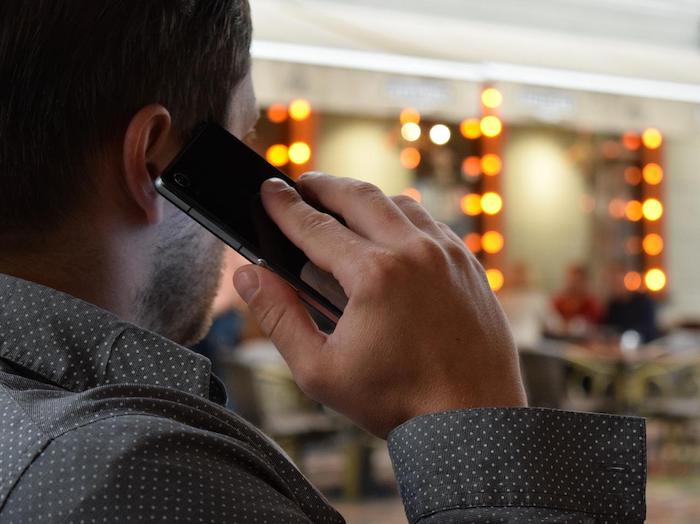
As mentioned above, it may be possible to access rehab through your health insurance, depending on the terms and conditions.
Most insurance providers require you to disclose the reason for the rehab stay, which may run the risk of your payments increase in the future.
We recommend speaking with your provider to understand what you are entitled to and the types of treatment that are covered by your policy.
You may also have the opportunity to access rehab through your employee insurance if your policy covers personal health treatment.
This may require you to disclose your addiction to your employer, however, which many people are not comfortable with.
Don’t write off the idea of using health or employee insurance to cover your rehab stay – when you do the research, you may be surprised at what you are entitled to under your policy.
To find out more about drug and alcohol rehab in Buckingham, please call our 24-hour helpline on 0800 326 5559
Can I use the NHS to access drug and alcohol rehab in Buckingham?
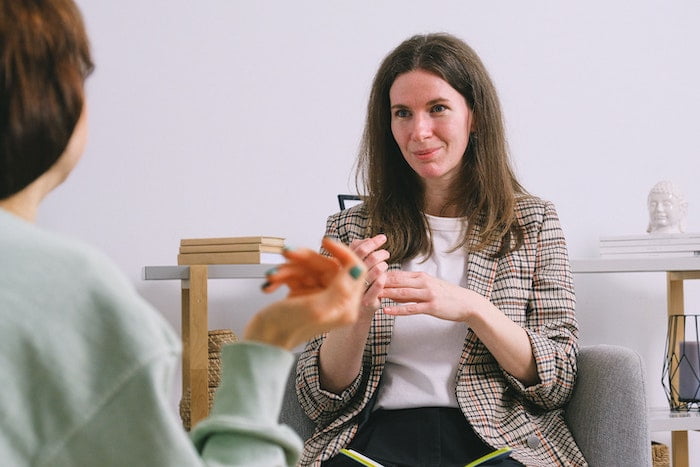
If you are unable to fund the cost of treatment yourself, you may wish to look into the option of accessing NHS-funded rehab.
This can be a long and daunting process, with only a small number of applications being accepted due to a lack of funding for the NHS.
You will usually need to be referred to a local drug and alcohol support team by your GP, who will, in turn, be able to liaise with the council on your behalf.
Applying for NHS-funded treatment involves filling out a variety of documents as well as proving your commitment to recovery by completing community-based treatment programmes and attending support groups.
This can feel like a full-time job in itself and can be stressful and time-consuming. Many people struggle with the demands of the application, particularly if they are actively battling an addiction.
Once you have met the requirements, your drug and alcohol support team will request funding from the council on your behalf.
You may be disappointed by the outcome of your application, particularly if you have worked hard to prove your dedication.
If you are denied NHS funding, you should not give up – consider raising funds via your family and friends or looking into private health insurance.
To find out more about drug and alcohol rehab in Buckingham, please call our 24-hour helpline on 0800 326 5559
Should I choose NHS-funded or private rehab in Buckingham?
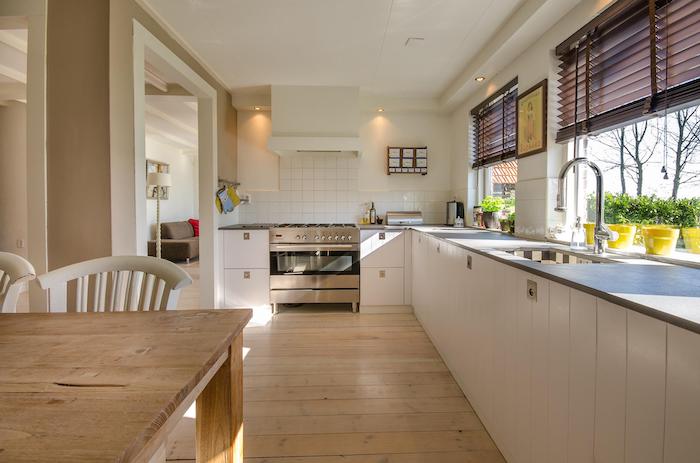
If you have the opportunity to choose between NHS-funded rehab or private rehab, it is recommended that you explore both the benefits and downsides of each form of treatment before making your decision.
Pros of NHS-funded rehab
- You will receive addiction treatment for free or at a reduced price
- You will have access to high-quality treatment and care
Cons of NHS-funded rehab
- Your application is may be denied due to a lack of funding
- Waiting lists can be long, with many people waiting weeks or months for a place
Pros of private rehab
- Waiting lists are usually extremely short, and you will receive access to treatment quickly
- A wider range of therapy treatments, including more niche methods, are usually available
Cons of private rehab
- Can be expensive, and many people may not be able to access it
If you have the required funds, private residential rehab is generally regarded as the most effective method of addiction treatment.
However, many people have found great success with NHS-funded rehab with the benefit of accessing this valuable treatment for free.
Free rehabs and organisations to consider for drug and alcohol addiction in Buckingham
Below is a list of other organisations that offer free support for addiction in and around Buckingham:
1. NHS Drug Addiction Support in Buckingham
Address: 33-37 Farthing Grove, Netherfield, Milton Keynes MK6 4JH
Telephone: 01908 250730
2. Turning Point
Address: Banbury Health Centre, 58 Bridge St, Banbury OX16 5QD
Telephone: 01295 225544
Website: http://wellbeing.turning-point.co.uk/oxfordshire/hubs/banbury-hub/
3. Compass Young People Drugs Service
Address: 138A Queensway, Bletchley, Milton Keynes MK2 2RS
Telephone: 01908 379673
You can also call a number of helplines, including Mind UK, YoungMinds, Rethink Mental Illness, Samaritans and Papyrus, SMART Recovery or find an Alcoholics Anonymous in Buckingham, Narcotics Anonymous or Cocaine Anonymous that is near to you.
The NHS are also there to give you support.
To find out more about drug and alcohol rehab in Buckingham, please call our 24-hour helpline on 0800 326 5559
Should I choose inpatient or outpatient rehab in Buckingham?

Inpatient rehab in Buckingham involves living at your chosen rehab clinic for the duration of your treatment programme. It removes you from your current environment and allows you to recover in a safe place free from triggering situations, with no opportunity to relapse.
If you choose to attend rehab as an outpatient, you will remain living at home and will attend on a part-time basis.
This type of treatment is best suited to someone with a more mild addiction, as there are still opportunities to relapse, and you will be remaining in an environment that may be potentially triggering.
Outpatient rehab in Buckingham can be more accessible for many people as it is usually more affordable and allows them to continue their employment during the treatment process, but inpatient rehab is thought to be the most effective method in the long term.
To find out more about drug and alcohol rehab in Buckingham, please call our 24-hour helpline on 0800 326 5559
Alcohol detox and rehab in Buckingham
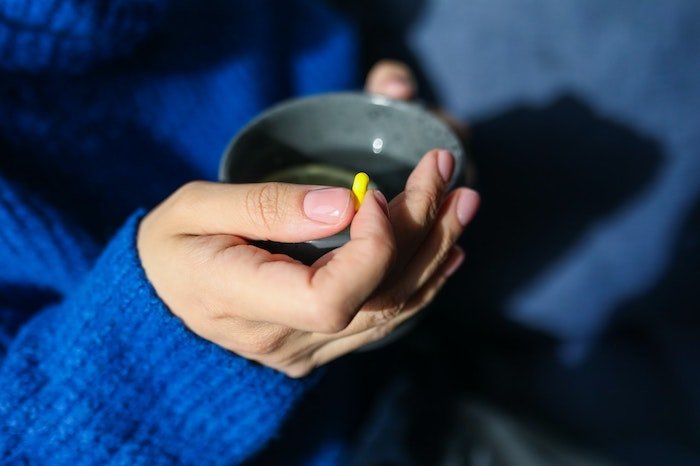
Recovering from alcohol addiction can be tough, both physically and mentally, which is why it is recommended to do so under medical supervision within a specialised rehab clinic in Buckingham.
Alcohol detox has the potential to be dangerous, as the body goes through a number of withdrawal symptoms ranging from tremors and nausea to seizures and hallucinations. [5]
Rehab staff will be able to prescribe medications such as Librium, which can help to alleviate some of the more intense withdrawal symptoms.
Alcohol withdrawal usually peaks after 72 hours and will usually be completed in seven-to-ten days, after which you will benefit from several weeks of counselling to address the root cause of the addiction.
To find out more about drug and alcohol rehab in Buckingham, please call our 24-hour helpline on 0800 326 5559
Cocaine detox and rehab in Buckingham

Cocaine addiction can have long-term consequences if not effectively treated, including your body’s inability to produce serotonin which is known as serotonin syndrome. [6]
Cocaine rehab can help your brain and body chemistry to rebalance, allowing your stores of serotonin to replenish over time.
This is achieved through psychological counselling and various therapy treatment methods, as well as medication and relapse prevention.
It is usually safe for most people to stop using cocaine without employing the ‘tapering off’ method, but you will still be supervised by medical staff during your time at rehab in Buckingham.
To find out more about drug and alcohol rehab in Buckingham, please call our 24-hour helpline on 0800 326 5559
Heroin detox and rehab in Buckingham
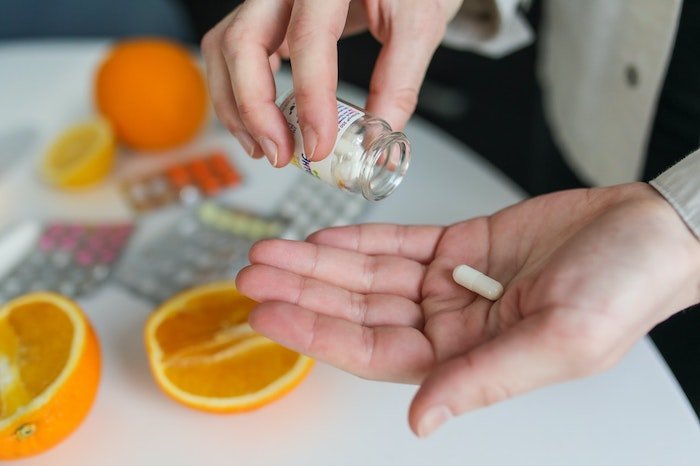
You have likely heard horror stories about the difficulty of recovering from heroin addiction, but you’ll be in safe hands at our clinics in Buckingham.
Our staff know just how intense the physical and psychological withdrawal symptoms can be, from vomiting to body aches and almost irresistible cravings.
They will be on hand to offer medication, maintenance therapy options and counselling to help get you through the worst of the process.
It’s important to remember that your tolerance to heroin will decrease significantly once you stop using it, so a relapse could mean a potential overdose.
As a result, you will be subjected to 24/7 monitoring for your own health and safety. [7]
To find out more about drug and alcohol rehab in Buckingham, please call our 24-hour helpline on 0800 326 5559
Cannabis detox and rehab in Buckingham

Recovering from a cannabis addiction is not an easy task, but with the help of our drug and alcohol rehabs in Buckingham, you will receive the support and guidance needed to break free from this substance.
Most people do not require a traditional detox from cannabis, as it is not a physically addictive drug.
The most difficult aspect of cannabis rehab is recovering from the psychological addiction, and this can be achieved through counselling, relapse prevention and effective aftercare.
You may experience some withdrawal symptoms such as cravings, depression, anxiety and insomnia when you first stop using cannabis.
The majority of these symptoms should pass within 7–10 days, and staff will be on hand to help you get through the process. [8]
To find out more about drug and alcohol rehab in Buckingham, please call our 24-hour helpline on 0800 326 5559
What types of therapy are available in Buckingham?

It’s important to make sure you receive the right therapy treatment to suit you and your needs, and Buckingham offers a range of counselling methods that can be used alone or in combination to treat your drug or alcohol addiction.
Cognitive Behavioural Therapy (CBT)
CBT is a popular form of talking therapy that helps you to understand the reasons behind your behaviours and subsequently change the thought patterns that may have contributed to your addiction.
It is based on the idea that our thoughts control our lives and can be very helpful in treating drug and alcohol addiction.
Dialectical Behaviour Therapy (DBT)
DBT is based on CBT but has been adapted to better suit people who experience intense emotions that are difficult to control.
This form of therapy can help you to accept what you cannot control and focus on the changes that you have the power to effect.
Motivational Interviewing
It can sometimes be difficult to pinpoint your reasons and goals for recovery, particularly when you are taking that first step towards treatment.
Motivational Interviewing can help you to understand why you want to stop using drugs and alcohol, allowing you to feel more motivated and driven to reach your sobriety goals.
Group Therapy
Many people feel alone in their addiction and, subsequently, believe that other people would never understand their situation.
Group Therapy allows you to share your experiences with others who may have similar stories, providing and gaining advice and support from the very people who will understand most.
Family Therapy
Family dynamics can play a huge role in the development of an addiction, often due to traumatic past experiences or certain family members enabling the addiction.
It can be helpful to engage in family therapy to bring everything out in the open and allow for more effective communication between members, which can help to heal emotional wounds.
Holistic Therapy
Often used in conjunction with one or more of the above therapy treatments, holistic and alternative therapies focus on healing the mind, body and soul.
They may include massage, mindfulness, aromatherapy, music therapy and meditation.
Other forms of therapy that can be accessed throughout Buckingham include brief interventions, codependency treatment and 12-Step facilitation therapy.
To find out more about drug and alcohol rehab in Buckingham, please call our 24-hour helpline on 0800 326 5559
What is a dual diagnosis?

Many people are battling a drug or alcohol addiction while simultaneously struggling with their mental health, which can make it difficult to recover from either condition.
A dual diagnosis refers to someone who has both a substance use disorder and a mental health condition. Each condition has its own symptoms, which can make it harder for you to function in society, and they can also interact with each other. [9]
Someone with schizophrenia, for example, may use drugs or drink alcohol to help them cope with the symptoms of this disorder. Alternatively, long-term heavy cannabis use can result in symptoms of paranoia and anxiety.
Some people are more prone to developing an addiction or mental health disorder due to genetics or past trauma, while others may unknowingly develop these conditions due to substance use.
It is important to treat both disorders while in rehab to give you the chance to recover long-term. If only the addiction is treated, the underlying mental health issue may cause a relapse after treatment has ended.
To find out more about drug and alcohol rehab in Buckingham, please call our 24-hour helpline on 0800 326 5559
How can I avoid relapsing after rehab is completed in Buckingham?
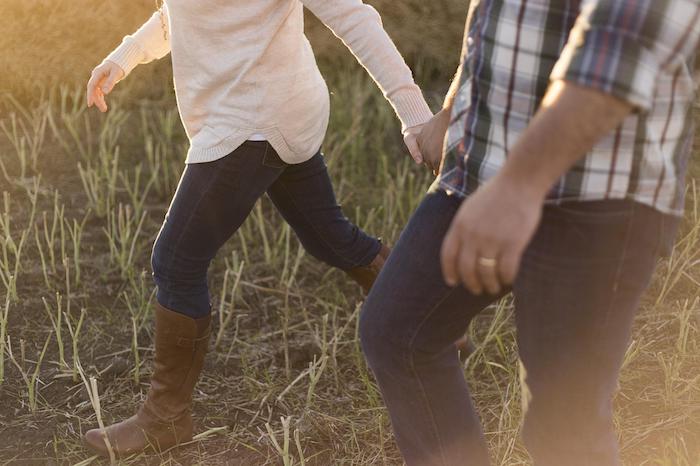
Although relapsing after rehab is common, most people don’t think it can happen to them – until it does.
Your rehab clinic will be able to assist you with proactive relapse prevention before you even leave the treatment centre.
This may involve techniques such as HALT, which stands for Hungry, Angry, Lonely and Tired. It’s a simple reminder to check in with yourself and ensure that you’re meeting your basic needs, as these sensations can leave you more vulnerable to relapse.
Your counsellor may also role-play specific scenarios with you to practise managing any triggering situations, and together you will work to identify your most common triggers and how you will handle them.
Remember, experiencing a relapse doesn’t mean that you have failed or that you need to start your treatment again from scratch.
It’s a common part of recovery and can be a good reminder that you need to prioritise your sobriety and health over everything else.
To find out more about drug and alcohol rehab in Buckingham, please call our 24-hour helpline on 0800 326 5559
How can I access aftercare services in Buckingham?

You may assume that you will be fully recovered once you leave rehab, ready to begin your new sober life.
In reality, you will need to keep your recovery at the forefront of your mind and continue to prioritise your mental and physical health.
This can be achieved by taking advantage of the wide range of aftercare services available across Buckingham, including the following:
- Alcoholics Anonymous (AA) and Narcotics Anonymous (NA) are well-known and established support groups located throughout Buckinghamshire and near to Buckingham
- Counselling and therapy treatments accessed outside of rehab can help continue with the work that you have already done
- Outpatient programmes allow you to access rehab services in Buckingham on a part-time basis while still continuing with work and family responsibilities
- Home detox programmes are an effective way to withdraw from drugs and alcohol in a safe and familiar setting
- Al-Anon meetings provide a space for friends and family members affected by addiction to share their experiences
- SMART Recovery programmes are a proactive way to continue treatment outside of a traditional rehab setting
You can also access many of these services from home if you are unable to attend in person, as the majority of counsellors and support groups are able to operate online.
To find out more about drug and alcohol rehab in Buckingham, please call our 24-hour helpline on 0800 326 5559
How should I prepare for rehab in Buckingham?

Entering rehab in Buckingham can be a daunting prospect, and not knowing what lies ahead of you is understandably scary.
Whilst we cannot detail exactly what your rehab experience will look like or what treatments you will be receiving, we can give you some things to do at home before you enter rehab to make your life a little easier and lessen your nerves about the journey ahead.
1. Tie up any loose ends
It is important that when you return to your life after leaving rehab in Buckingham, your life is not too hectic, as you will have yourself to worry about.
Having stressful to-do lists to go back to can result in you being overwhelmed when you eventually leave rehab and can take up precious time that should be spent ensuring your recovery journey continues.
To help minimize these concerns, ensure that anything that has to be taken care of whilst you’re away is looked after, such as finding family members to look after a pet or setting up automatic payments for bills that will need to be paid during your stay.
The less stressful the environment you return to is, the better for your recovery.
2. Tell people
Similar to tying up loose ends, it is helpful and sometimes necessary to tell the people in your life what is happening.
Tell loved ones where you will be going and why, and they might surprise you by being supportive of your decision. Keeping your substance use a secret is never healthy, and friends and family should know what your plans for rehab are.
If you have a job, it is extremely important to let any employers know what your situation is and how long you will be away.
If you are lucky, they will understand and be able to schedule you back when you are ready to return. If it helps them out, maybe find cover for your workload.
3. Prepare to get to work
Don’t assume rehab is a vacation from your regular life. Rehab in Buckingham is not an easy process and can only work if you work too.
You’ve made the time and have paid the costs, but now you will need to make the effort and prepare to work hard towards recovery in order to reach it.
Be open to all treatments that are recommended to you, be honest in therapy, and don’t rush – rehab is not an overnight fix.
To find out more about drug and alcohol rehab in Buckingham, please call our 24-hour helpline on 0800 326 5559
How will I remain sober after rehab in Buckingham?

It is understandable to panic about the prospect of leaving rehab and returning to the ‘normal world’.
Outside of rehab in Buckingham, there are many temptations, triggers, and people that can lead to a relapse, but with our help and your hard work, that will hopefully not be the case.
When you leave rehab, the work doesn’t stop there, and you will need to continue with treatment on your own.
You will receive an aftercare plan detailing everything you will have learnt during your stay in rehab and also guidance on how to continue living a drug and alcohol-free life.
If you do require any further support, our helpline is always open, or additional appointments can be made for you at your chosen rehab if needed.
However, there are a few things you can do to make sober living easier:
1. Change your social group
You may want to examine whether the people you surround yourself with are supportive of your recovery journey or are more likely to tempt you towards relapse.
If the latter is the answer, it may be time to change around your friend group and find new people to socialise with. Your recovery should have priority.
2. Be on the lookout
Without constant attention from staff, the onus will be on you to watch out for possible warning signs of a relapse or returning symptoms of addiction. If you do notice anything, give us a call or contact a trusted friend to help you out.
3. Get a new hobby
Starting a new hobby, getting creative, or joining a club or sports team are all great ways to improve your overall mental health and give you something to throw yourself into.
Breaking old routines and habits is sometimes crucial to continue recovering from a drug or alcohol addiction, so get out and try some new things.
With trying new things in mind, it is a good idea to get involved with some of the holistic therapies available to you in rehabs in Buckingham, as these therapies will include music, adventure, and art.
How do these things help me stay sober after drug or alcohol rehab in Buckingham?
When you change your friends and activities, you build a new life that doesn’t revolve around drugs or alcohol.
This teamed with the coping mechanisms you’ll learn will help you to keep your mind off addiction, and maintain willpower.
Get Help Today
If you wish to know more about our services or would like to start an enquiry for yourself or a loved one, call us today on 0800 326 5559, or fill in our online form to receive a callback about your treatment options.
You are in safe hands. All drug and alcohol rehabs have to be registered and audited by the Care Quality Commission (CQC).
OK Rehab also offers addiction support across the UK, including Mount Pleasant, Page Hill, Bourton, Badgers, Linden Village, Castle Fields, Lace Hill, Aylesbury, Milton Keynes, Banbury, Bicester and Bletchley.
To find out more about drug and alcohol rehab in Buckingham, please call our 24-hour helpline on 0800 326 5559
References
[1] https://sexualhealthbucks.nhs.uk/app/uploads/2020/03/DPHAR-2018-2019-main-report.pdf
[2] https://www.bucksherald.co.uk/health/record-number-of-drug-deaths-in-bucks-in-2020-3336937
[3] https://www.ncbi.nlm.nih.gov/pmc/articles/PMC4394369/
[5] https://www.health.harvard.edu/a_to_z/alcohol-withdrawal-a-to-z
[6] https://www.ncbi.nlm.nih.gov/pmc/articles/PMC2851032/
[7] https://nida.nih.gov/sites/default/files/heroinrrs_11_14.pdf
[8] https://nida.nih.gov/publications/research-reports/marijuana/marijuana-addictive





